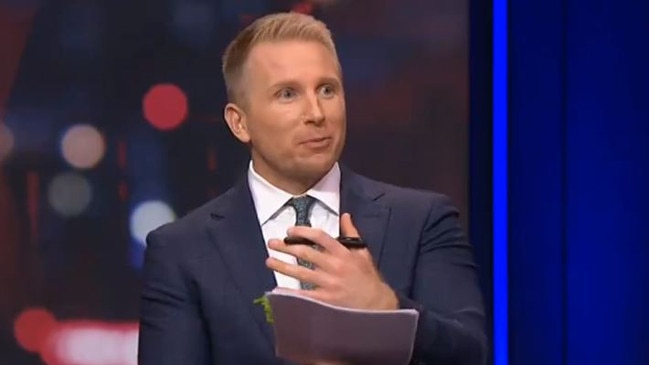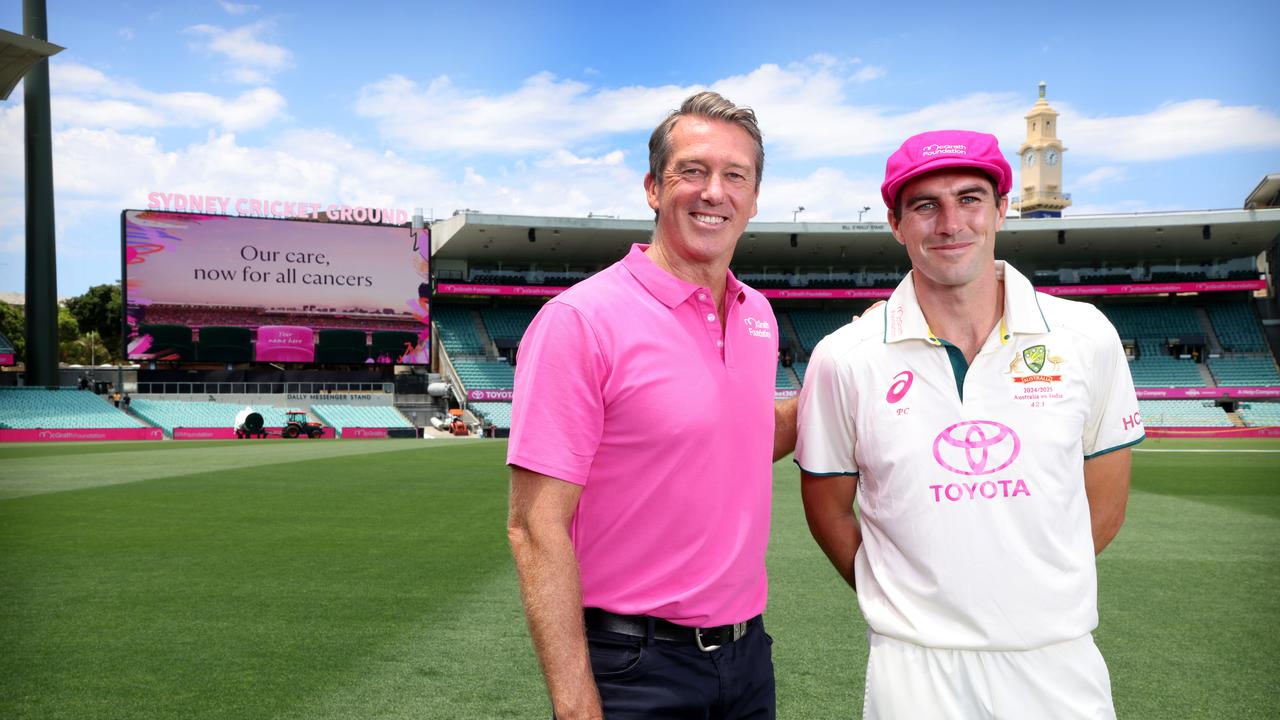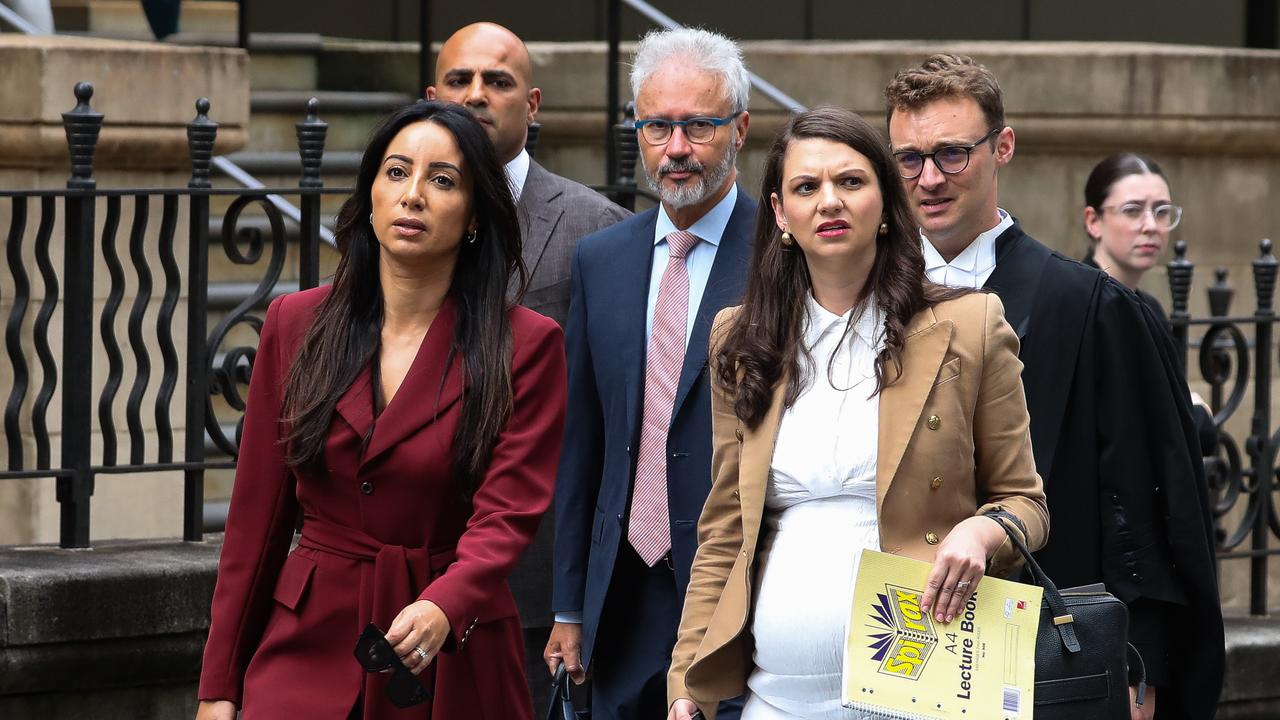QandA: Our deal with social media is unfair, says Marc Fennel
Twitter, Google, and Facebook were all absent from Monday’s QandA despite being front and centre of an episode that took aim at the social media behemoths.

Twitter, Google, and Facebook were all absent from Monday’s QandA despite being front and centre of an episode that took aim at the social media behemoths.
QandA host Hamish Macdonald noted the platforms had been contacted “lots of times in the year” but were yet to make anyone available.
This comes as the social media giants are locked in a battle with major media publishers including News Corp Australia, the publisher of The Australian, over payment for news content.
How the platforms have changed the public discourse, how the public engage with the platforms, and how the platforms engage with the public were all topics of the night.
Tonight, #QandA is discussing the consequences of our growing dependence on social media with @tristanharris, @MarcFennell, @tweetinjules, The Inspired Unemployed, @sallyrugg and @JocelynBrewer. Tune-in at 9.35pm AEDT on @ABCTV and iview. pic.twitter.com/m2oTPaBnK5
— QandA (@QandA) October 18, 2020
With a hefty line-up of panellists including psychologist Jocelyn Brewer, eSafety Commissioner Julie Inman Grant, ABC journalist Marc Fennel, executive director at Change.org Sally Rugg, and computer scientist and star of the documentary The Social Dilemma, Tristan Harris, all weighed in.
Fennel said the current arrangement between social media platforms and the public was too one-sided.
“Currently the terms of the deal that all of us have with social media services is unfair, it is unfair because the terms of the deal that we all have are unfair, it’s unfair because it’s opaque, because you don’t know what they have on you,” he said.
“If we had a bit more clarity … with why we are being served what we are being served we would at least have clarity over the way we are being manipulated.”
#QandA We can feel sorry for people who are in such bad shape psychologically that they indulge in anonymous abuse online, but we have no responsibility for their illness and we do not want to be involved in their fear, rage and despair. We owe them nothing. Just block them.
— Prof. Peter Doherty (@ProfPCDoherty) October 19, 2020
Ms Rugg said social media posed a danger to the real world.
“Misinformation and terrible behaviour online has such serious material impacts that sometimes I feel like it’s easy to forget that while we are watching the sideshow of bad behaviour online that it has real impact in the real world,” she said.
However, she rejected an assertion that social media was “incompatible with good in the world”.
“Social media creates so much good in the world. Whether it is through correcting family and friends, whether it’s through providing safe places and communities for minority groups or like in my line of work, which is digital campaigning and online activism,” she said.
But Ms Rugg said the main way to ensure the social media platforms made positive change was pressure on the bottom line.
“Platforms care about their revenue and reputation and if it affects their revenue they will change it,” she said.
“With Q-Anon, the backlash against the harmful conspiracy was it was affecting advertisers’ willingness to come to the platform and it was getting Facebook a lot of bad press so they acted on it. For a long time they said they couldn’t because it was too hard.”
The challenge of social media is a question of power & regulation and what government must do to democratise the medium.#QandA is completely missing they point #auspoI
— Wayne Swan (@SwannyQLD) October 19, 2020
Mr Harris, a former Google design ethicist, said the rise of social media had splintered a shared sense of truth.
“The technology platforms are ultimately responsible and part of the reason they are responsible, we are now 10 years into the mass shredding apart from reality,” he said.
“We as a civilisation have been bombed by a business model, it wasn’t kinetic, but it was a shredding impact on our society. We can’t solve the problem if we don’t collectively realise what happened to us.”
Ms Inman Grant warned criticism of the social media platforms needed to focus on forcing them to actually enforce their terms of service
“We can’t go to war with the internet and, first of all, I think we think the companies need to start enforcing their policies,” she said.
“I don’t think we will regulate or arrest our way out of the problem. Social media holds a magnifying glass up to society, so the societal ills of misogyny and prejudice and racism are surfaced and then amplified.
“We have to shift the responsibility back to platforms.”
The eSafety Commissioner said the public needed to ignore the protests from the social media platforms and the threats that they would leave Australia if regulated.
“They did it four years ago when the eSafety office was established. They said we are leaving the country and you are going to quash freedom of speech,” she said, noting the same situation was happening now.
“Literally, they are throwing a tantrum.”
Fennel said the situation around social media was even more complicated for parents and by children.
“We have some friends who – and I respect them for doing this – kept all their kids offline and want a clean slate for when they launch,” he said.
“I’m incredibly grateful social media didn’t exist while I was in years 11 and 12.
Because I would have posted terrible things. I would have posted things that I would be trying to scrub from the internet as we speak.”
Guess not! https://t.co/8ykUbz6MOT
— Marc Fennell (@MarcFennell) October 19, 2020
Ms Inman Grant said people needed to walk the walk when it came to digital restrictions for kids.
“We need to be role-modelling for our kids, we can’t tell them to get off Fortnite while we’re scrolling through the Twitter feed at the table. Nor do we when we treat people disrespectfully,” she said.
“We are not setting them up for success. We talk about respect, responsibility, building resilience, because it is when something goes wrong online and critical reasoning skills to help kids discern fact from fiction and find truth in this desert of information.”
Do parents still need to be vigilant about their children’s social media use? Or should they ‘give in’ to help their kids ‘fit in’? #QandA pic.twitter.com/JkjxqZNbFb
— QandA (@QandA) October 19, 2020



